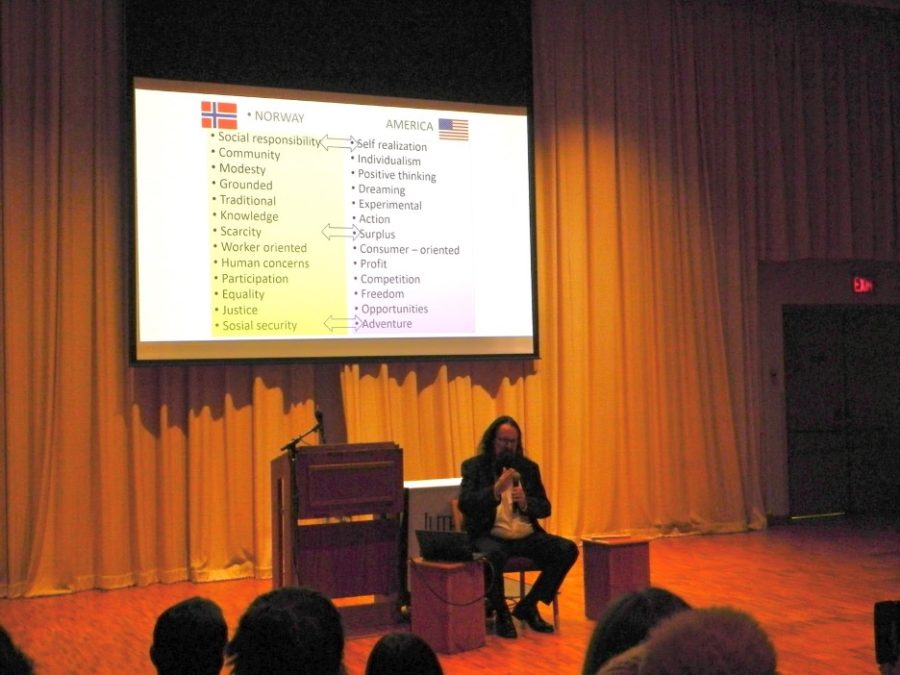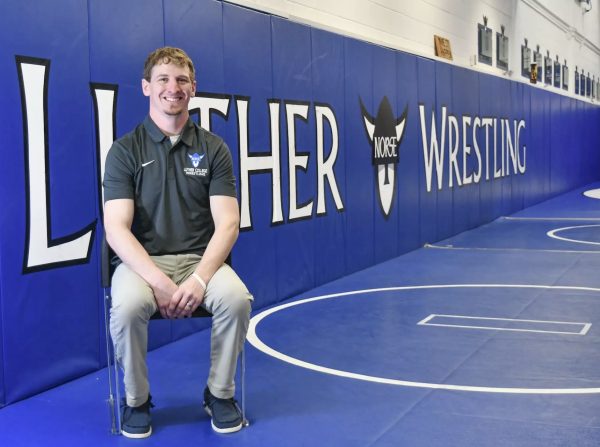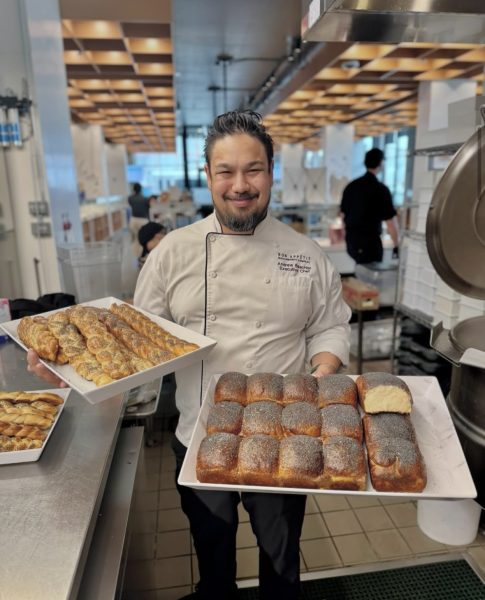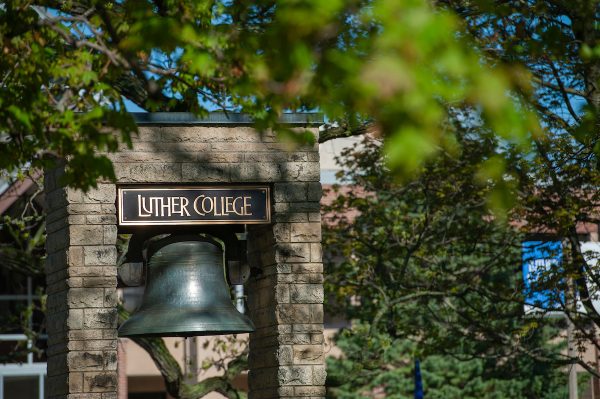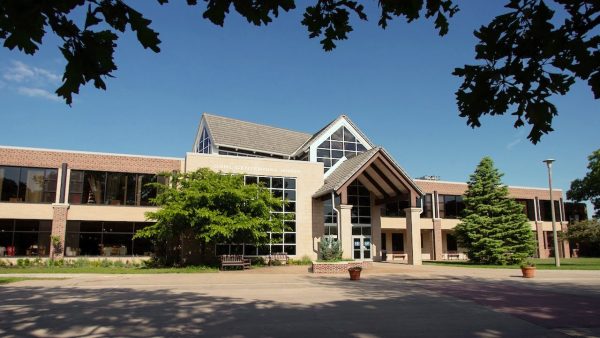Renowned international dialogue facilitator and lecturer, Steinar Bryn, presents at Luther
On Valentine’s Day, students and faculty assembled in the CFL Recital Hall to listen to Dialog Facilitator, Lecturer at Nansenskolen (the Norwegian Humanistic Academy), Nobel Peace Prize nominee, and King Olaf V Scholar in Residence at Luther Steinar Bryn present on maintaining dialogue in conflict situations. Bryn has led the Nansen Academy’s Nansen Dialogue program for almost thirty years, and in his talk, focused on how conversation between opposing parties can slowly lead to understanding and change.
Bryn began by explaining the underestimated potential of dialogue. As a Norwegian native studying in the U.S., he realized that many of the perceptions he had about “you Americans” were in fact generalizations that didn’t reflect the reality he experienced when finally meeting and talking to Americans. Darren Kramer (‘23) visited Norway and the Nansen Academy over J-Term and attended the event. Kramer found Bryn’s philosophy on dialogue intriguing after spending three weeks abroad.
“I like his perspective,” Kramer said. “It can lead you to be more open to people with other views. It is such a different approach to life. I think you can really connect with people in an [open] environment like this.”
The Nansen Academy has about 70 students and is often a neutral ground for conversations between conflicting parties. Idealism and optimism are two approaches that Bryn and his colleagues follow in building consensus and ending conflict. To illustrate that point, Bryn paraphrased Fridtjof Nansen, the founder of the Nansen Academy:
“Don’t say something is hopeless or impossible,” Bryn said. “The impossible just takes a little longer.”
In practice, Bryn has applied this concept to ethnic and religious conflicts in Western Balkan countries. When people from those countries stayed for seminars at the Nansen Academy, they were unwilling to talk to the other side at first, but they slowly started to understand the opposing perspective after listening to them. Bryn pointed out that where somebody is born deeply impacts their position in life and that isn’t always entirely their fault.
Associate Professor of Nordic Studies Maren Johnson, who met Steinar Bryn on a study abroad trip back in 2018, explained how the Norwegian approach is often not focused on transactions. In the future, Johnson hopes to implement Bryn’s approach in her classes.
“Norway has a small population,” Johnson said. “There is more trust and therefore the ‘entreé to dialogue’ is quite different.”
After his lecture, Bryn answered questions from the audience and stayed at a reception to talk to students and faculty. Many were interested in his ideas, but also questioned them. Salomé Valdivieso Santillán (‘23) found Bryn’s ideas interesting to think about, but noted how power imbalances in dialogue can become problematic.
“The world would be a better place if we had more places of dialogue,” Valdivieso Santillán said. “It is important to take into account how we carry a dialogue in different contexts, especially when the power dynamics are very present.”
Bryn is currently the King Olav V Scholar in Residence at Luther until April.

